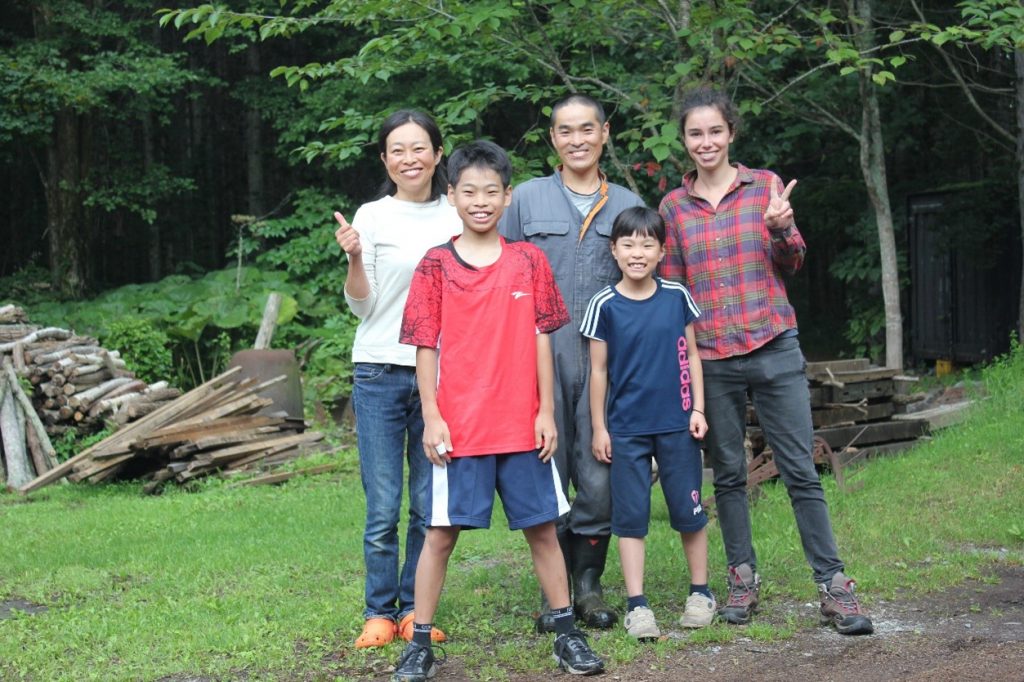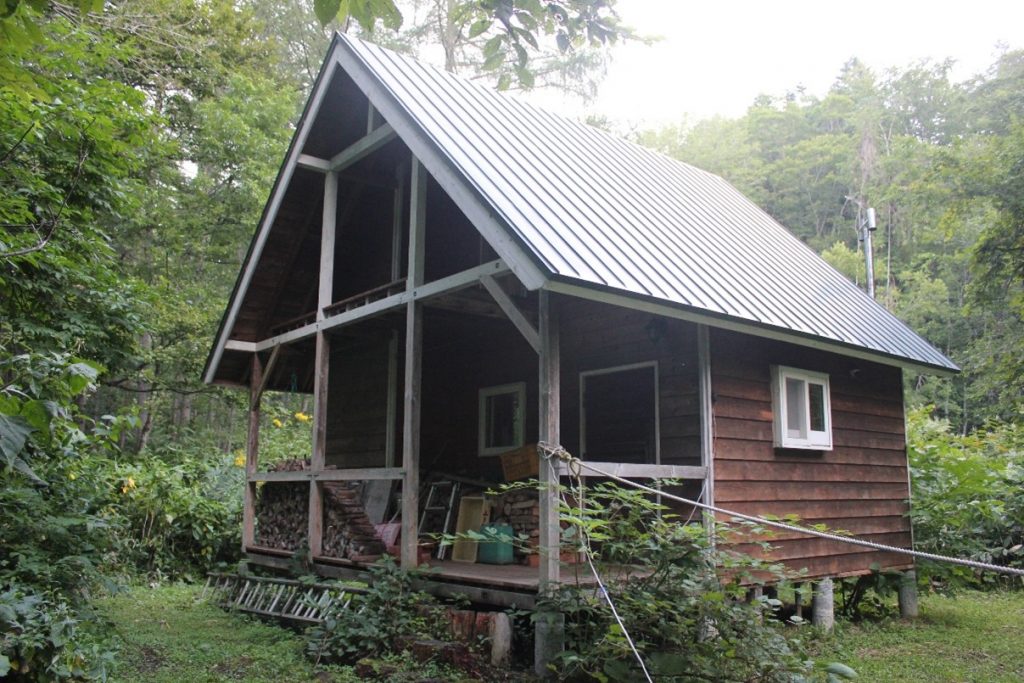By Maritchu Durand
Today I would like to share my experience as a wwoofer in Hokkaido, an experience which gave me a unique glimpse into rural life and community in northern Japan. This ultimately sparked my interest for the “other Japan” I had not yet seen as a Tokyoite exchange student.
Wwoof (as in World-Wide Opportunities on Organic Farms) connects voluntary short-term workers (Woofers) with organic farm owners (hosts). The purpose is mutual exchange without any money involved. Browsing through the list of hosts, the Nara family immediately caught my eye. Describing their home as a house in the middle of the woods and warning potential woofers from the summer insects, they seemed to be just what I was looking for. I wrote to them and we arranged the period I would be staying with them the next day. I stayed with Natsumi, Takeshi and their three children in the Hokkaido forest and helped with various tasks around the house and worked with Takeshi as an unskilled gardener-apprentice. In exchange I got my own little hut to sleep, three delicious meals a day shared with the family and the opportunity to be adopted as a member of the family. I learned so many interesting things about their lifestyle, work and community.

Copyright© Maritchu Durand 2018

Copyright© Maritchu Durand 2018
Natsumi moved to Hokkaido as a volunteer for a year at the age of 27 – she never left. She told me that she was intrigued by the self-sustaining lifestyle. Heating your oven with the wood you chopped yourself, cooking with what you saw and grew felt more natural to her despite the hard work involved. She and Takeshi eventually build their own house, dug their own well, and now mostly rely on the vegetables they either produce or exchange with their neighbours. Natsumi mostly stays at home where she bakes an incredible variety of breads, cookies and cakes for her bakery business. Besides selling at the local market – consisting of a single broad hall in the village centre, managed by local volunteers – she also takes orders and sometimes travels to Sapporo to sell her produce.

Copyright© Maritchu Durand 2018
Takeshi, on the other hand, drives around the region for a different job every day. During my stay we trimmed an old woman’s Japanese garden, cut the tree in front of a community centre, helped a neighbour with her fallen plum tree and carried materials around at an onsen-resort construction site.

Copyright© Takeshi Utsui 2018
I was amazed and overwhelmed by this life in the middle of the woods. It seemed to me that the family lived a peaceful, plentiful life within a strong and connected community. I participated in a friendly parent-student reunion at the second son Takara’s middle school. We made omuraisu and played volleyball together. At the town’s onsen, the local women made fun of me because I could not enter the hottest bath. I suffered hard defeat playing badminton against the 8-12 year olds Takeshi voluntarily taught after work at the local school, two of his students being his son Takara and A-chan, his young daughter.
But after a few days I also started to see the fragility of this seemingly untouchable community. Most of the town people seemed to be either working far away or had already retired; the school only had a total of 40 students. Ikkyu, the eldest, had to move three hours away and the family rented a room for him to go to high school, barely seeing his family. Takeshi jumped from day job to day job, and Natsumi said that some months were really difficult.
As a Wwoofer, I became part of the of the family and therefore enjoyed valuable insights into the life of Natsumi and her family as well as into community life from the inside. I felt like I somehow became one of them rather than looking at the locals from the outside. This gave me the unique opportunity to experience a fragment of life in rural Hokkaido. What I found there was indeed a fragile lifestyle. On the other hand the local community was very strong, closely connected and welcomed me warmly. People were ready to share their experiences with me, offered me jobs and invited me into their homes, shared stories about their travels abroad and about their everyday life. Had I not, on a whim, contacted the family that presented itself as living among many many insects in the deep Hokkaido woods, who knows if I would have embarked on this journey of research on rural Japan?
